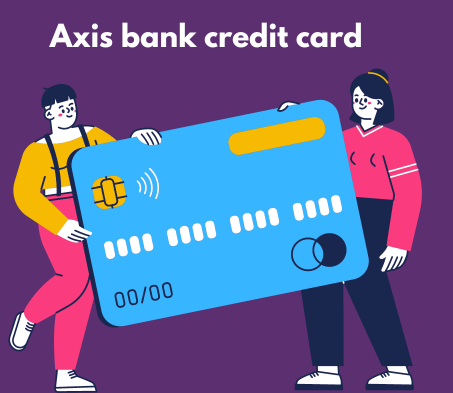Credit cards for Beginners : Everything You Need to Know
Table of Contents:
- [introduction]
- Introduction
- Understanding Credit Cards
- Why Should Beginners Consider Using Credit Cards?
- Types of Credit Cards for Beginners
- 4.1 Secured Credit Cards
- 4.2 Student Credit Cards
- 4.3 Low-Interest Credit Cards
- 4.4 Rewards Credit Cards
- How to Choose the Right Credit Card
- 5.1 Assessing Your Needs
- 5.2 Understanding Fees and Interest Rates
- 5.3 Credit Score Considerations
- Applying for Your First Credit Card
- Managing Your Credit Card Responsibly
- 7.1 Making Payments on Time
- 7.2 Monitoring Your Spending
- 7.3 Understanding Credit Utilization
- Building and Improving Your Credit Score
- Common Pitfalls to Avoid
- Conclusion
Introduction
Entering the world of credit cards for beginners can be intimidating, especially for beginners. However, understanding the basics and choosing the right card can set you on a path to financial freedom and responsible money management. In this comprehensive guide, we will explore everything you need to know about credit cards for beginners.

Understanding Credit Cards
Credit cards are financial tools that allow you to borrow money from a bank or financial institution to make purchases, with the agreement that you will repay the borrowed amount later, often with added interest. They offer convenience, security, and the opportunity to build credit history.
Why Should Beginners Consider Using Credit Cards?
Credit cards for beginners provide several benefits :
- Building Credit History: Responsible use of a credit card can help establish a positive credit history, which is crucial for future loans such as mortgages or car loans.
- Convenience: Credit cards offer a convenient payment method, accepted globally, and often come with fraud protection.
- Financial Emergencies: Having a credit card can provide a financial safety net for unexpected expenses.
Types of Credit Cards for Beginners
There are various types of credit cards for beginners:
4.1 Secured Credit Cards
Secured credit cards require a cash deposit as collateral, which typically determines your credit limit. They are ideal for those with no credit history or poor credit scores.
4.2 Student Credit Cards
Designed for college students, these cards often have lower credit limits and may include benefits like cashback on student-related purchases or rewards for good grades.
4.3 Low-Interest Credit Cards
These cards offer lower ongoing interest rates, making them suitable for beginners who may carry a balance from month to month.
4.4 Rewards Credit Cards
Rewards cards offer points, miles, or cashback on purchases. Beginners can benefit from these rewards by using the card responsibly and paying off balances in full each month.
How to Choose the Right Credit Card
Choosing the right credit card involves considering several factors:
5.1 Assessing Your Needs
Evaluate your spending habits and financial goals to determine which features—such as rewards, low fees, or a low APR—are most important to you.
5.2 Understanding Fees and Interest Rates
Compare annual fees, late payment fees, and interest rates (APR) across different cards to find the most cost-effective option for your financial situation.
5.3 Credit Score Considerations
Your credit score plays a significant role in the approval process and the type of card you qualify for. Review your credit score and choose a card that aligns with your current credit profile.
Applying for Your First Credit Card
Once you’ve chosen a card, the application process typically involves submitting personal information and consenting to a credit check. Ensure all information provided is accurate and complete to increase your chances of approval.
Managing Your Credit Card Responsibly
To maximize the benefits of your credit card and avoid common pitfalls, follow these tips:
7.1 Making Payments on Time
Timely payments are crucial for maintaining a good credit score and avoiding late fees and interest charges.
7.2 Monitoring Your Spending
Track your spending regularly to stay within your budget and avoid accumulating debt that you cannot repay.
7.3 Understanding Credit Utilization
Keep your credit utilization ratio (the amount of credit you use compared to your total credit limit) low to demonstrate responsible credit management.
Building and Improving Your Credit Score
Consistently using your credit card responsibly—paying bills on time and keeping balances low—can help build a positive credit history and improve your credit score over time.
Common Pitfalls to Avoid
Avoiding common mistakes, such as maxing out your credit limit, making only minimum payments, or applying for multiple credit cards at once, can prevent financial setbacks and negative impacts on your credit score.
Conclusion
Navigating the world of credit cards for beginners may seem daunting at first, but with the right knowledge and approach, you can leverage these financial tools to your advantage. By understanding how credit cards work, choosing wisely, and managing your finances responsibly, you can build a strong credit foundation for future financial success. Whether you opt for a secured card to build credit or a rewards card to earn benefits, the key lies in making informed decisions and practicing sound financial habits. Happy card hunting!
In conclusion, credit cards for beginners can be powerful tools when used responsibly. They offer convenience, security, and the opportunity to build credit—a crucial aspect of personal finance. By choosing the right card, managing it effectively, and understanding your financial responsibilities, you can pave the way towards a stable financial future.https://growfinanceplus.com/top-axis-bank-credit-card/







3 thoughts on “Best Credit cards for beginners 2024”